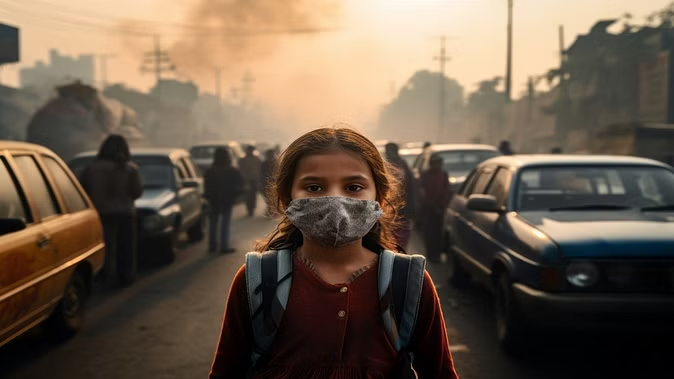The Center for Study of Science, Technology and Policy (CSTEP) conducted a detailed study on air pollution in 76 cities of the country. Many things have come to the fore in this study. The study has found that out of the targets set by the National Clean Air Program to reduce pollution, only a few cities will be able to achieve the targets in the coming time. Let us tell you that the National Clean Air Program was launched by the Government of India in the year 2019.

Its objective was to improve air quality in 131 cities of the country which are not meeting the national air quality standards. The study, which lasted for 2.5 years, has revealed that only 8 cities will be able to reduce emissions by 40 percent by 2030. Not only this, local emissions in these cities may increase by 11 to 45 percent by the year 2030 as compared to 2019. This will make the air quality in these cities even worse.
This study was done keeping in mind four special types of pollutants PM₁₀, PM₂.₅, SO₂, and NOₓ. In the study, an attempt was made to find out how much these pollutants can be reduced or increased by the year 2030 by making 2019 as the base year. The findings of this study were verified against transport and domestic fuel consumption surveys conducted in more than 70 percent of the cities.
The study found that if no proper plan is made to prevent air pollution in these cities. In this situation, the amount of PM2.5, which is a very harmful air pollutant, can be seen increasing by the year 2030.
Apart from this, the study also emphasizes that there is a need to focus on industry, transportation, construction and open burning of waste material to reduce air pollution so that the goals of NCAP can be achieved.
A visualization portal will be launched on the findings of this study at the sixth edition of the Indian Clean Air Summit 2024 organized by CSTEP in Bengaluru.
(PC: Freepik)










